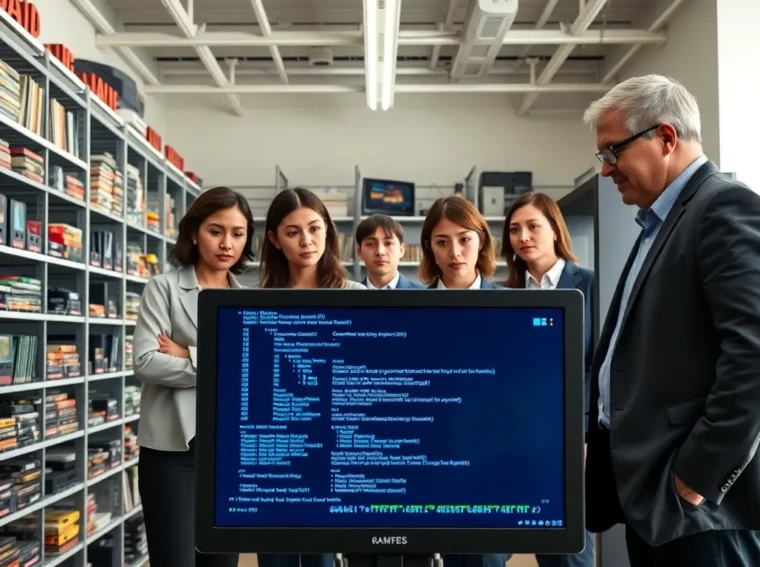Imagine stepping into a time machine that whisks you away to the pixelated worlds of yesterday. The thrill of nostalgia washes over you as familiar characters leap back to life. Welcome to the realm of game archives, where old favorites meet modern preservation efforts. But what exactly are these archives, and why should we care? Well, folks, if you’ve ever wondered how a vintage arcade game can still make its sweet, blippy sounds decades later, you’ve come to the right place. Sit tight: we’re diving deep into the digital vaults of gaming history, and trust us, this ride is anything but boring.
The Game Archives

Game archives serve as treasure troves of our interactive cultural history. They house video games, their source codes, art, and even intricate design documents that go into creating these digital worlds. At their core, game archives aren’t just about storing data: they’re about preserving a piece of our collective memory. For gamers and developers alike, these archives offer a glimpse into the evolution of game design and technology.
Why should this matter to you? Because each pixel and every line of code in these archives tells a story. They capture the triumphs and failures of game developers, mirroring societal shifts and technological advancements. Without these archives, we risk losing not just games but an entire era of creativity and innovation.
The Evolution of Game Preservation
The journey of game preservation has been nothing short of fascinating. In the early days, many games blurred into obscurity, disappearing along with outdated consoles. With the advent of the Internet, the concept of game preservation began to shift. Websites dedicated to archiving classic games emerged, enabling enthusiasts to relive nostalgic moments.
Fast forward to today, preservation efforts have matured. Institutions like the Library of Congress include video games in their collections, recognizing their cultural significance. Also, digital preservation strategies now encompass not only code but also how games are experienced, ensuring that future generations can interact with them in meaningful ways.
Key Components of Game Archives
Game archives consist of several crucial components that work together to ensure comprehensive preservation.
Challenges in Game Archiving
Game archiving isn’t a walk in the park. From outdated formats to the decay of hardware, the challenges are many. The gaming industry moves fast, leaving old hardware in the dust and making it tricky to access legacy titles. Preservationists often scramble to find the right tools to breathe life into forgotten games.
Technological Limitations
Technological concerns extend to software as well. Many games are bound to hardware dependencies that may require specific consoles or operating systems. In some instances, developers have embedded proprietary technology within games, complicating emulation efforts. The struggle for compatibility persists as new systems come into play.
Legal and Ethical Considerations
Last but certainly not least are the legal and ethical hurdles. What about copyright? Who owns the rights to games that have been abandoned by their developers? These questions plague archivists and preservationists, creating a complex landscape where ethical dilemmas often overshadow technological gains.
Successful Examples of Game Archives
Several organizations stand out for their commitment to preserving gaming history.
Take the Video Game History Foundation as a prime example. This non-profit is focused on preserving, sharing, and teaching the history of video games. They actively seek out artifacts and documents that provide insight into the development process, making them invaluable resources.
Another noteworthy institution is the Strong National Museum of Play, which curates an extensive collection of games, consoles, and memorabilia from various eras. By providing access to these archived materials, they foster appreciation for gaming history among visitors of all ages.
The Role of the Community in Game Preservation
Gaming communities play an indispensable role in preserving the past. From fan-made patches that allow older games to run on modern systems to forums where enthusiasts trade tips on rescuing forgotten titles, the communal spirit shines brightly.
Also, grassroots organizations often emerge to launch campaigns for archiving specific games, creating awareness around lesser-known titles that might otherwise fade from collective memory. Without these passionate individuals, many games would vanish, leaving future generations in the dark about gaming’s rich tapestry.
Future Directions for Game Archives
The future of game archives looks promising, mainly due to advancements in technology and growing awareness of their importance. As virtual reality and augmented reality gain traction, new methods for experiencing archived games may emerge, turning passive preservation into active engagement.
Also, with the rise of digital ownership and blockchain technology, securing rights to games for future archives may become more straightforward, paving the way for comprehensive collections that include both modern and classic titles. As society continues to recognize the cultural significance of video games, it’s likely that institutions will further invest in archival efforts.

